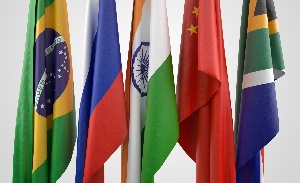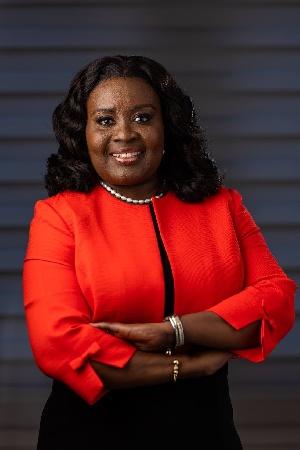Africa News of Friday, 16 May 2025
Source: www.ghanawebbers.com
Africa: New Africa BRICS Members Decry Preferential Treatment for South Africa
Egypt and Ethiopia blocked a BRICS declaration supporting South Africa for a UN Security Council seat.
BRICS is expanding, which can lead to disagreements among members. This was evident at the recent BRICS foreign ministers meeting in Rio de Janeiro. The meeting did not produce a consensus communique due to objections from Egypt and Ethiopia. These two countries joined BRICS in 2023, making them new African members.
Before this expansion, South Africa was the only African member. Brazil, Russia, India, and China admitted South Africa in 2010. At the 2023 Johannesburg summit, they invited Argentina, Ethiopia, Egypt, Iran, Saudi Arabia, and the UAE to join. Argentina declined the invitation while Saudi Arabia remained silent. Thus, BRICS became a club of nine with Saudi Arabia as an observer.
Last year under Russia's presidency, BRICS invited Indonesia to join and accepted 13 new partner countries. Indonesia became a full member in January this year. Belarus, Bolivia, Cuba, Kazakhstan, Malaysia, Nigeria, Thailand, Uganda, and Uzbekistan were accepted as partners.
Not all core members support expansion equally. Russia and China are most enthusiastic about it. India and Brazil are less supportive while South Africa is somewhere in between.
The Rio meeting revealed divisions within core BRICS members and among African nations. Brazil proposed a declaration for leaders to adopt at the July summit. This draft included calls for UN Security Council reform to enhance global representation.
However, details on this issue were contentious. Over time, BRICS has supported Brazil's and India's aspirations for permanent UNSC seats but never explicitly stated it. This suggests that China and Russia oppose adding new permanent members.
In the 2022 Beijing Declaration, China and Russia acknowledged Brazil's role in international affairs but did not commit fully to its aspirations for greater influence at the UN.
The Johannesburg II Declaration of 2023 supported emerging countries' roles in international affairs but still lacked explicit backing for Brazil or India regarding permanent seats on the UNSC.
By last year's Kazan summit in Russia with Egypt and Ethiopia now part of BRICS pressure emerged for caution on these issues. The Ezulwini Consensus states that Africa should have two permanent UNSC seats decided by its nations.
The Kazan Declaration recognized previous agreements but did not mention Brazil or India specifically regarding permanent seats.
At last month's Rio meeting ministers could not agree on a communique because Egypt and Ethiopia opposed parts of an approved plan giving South Africa a permanent seat on the UNSC.
Chrispin Phiri from South Africa’s Ministry of International Relations said negotiations diverged between Brazil, India, Ethiopia and Egypt over mentioning potential new permanent UNSC members. He noted that South Africa fully supports the Ezulwini Consensus.
Another official indicated that Brazil wanted to mention aspirations for permanent seats more clearly than before but faced opposition from Egypt and Ethiopia who felt it favored South Africa over other African nations.
Eventually Brazil removed references to South Africa from their proposal reverting back to earlier language while still mentioning Brazil and India specifically. However,Egypt and Ethiopia refused to endorse any communique or even accept a lesser 'Chair's Summary' without recording their objections regarding Security Council reform discussions.
Officials suggested that Egypt and Ethiopia aimed to shift away from old language while also punishing Brazil for what they viewed as divisive negotiation tactics within BRICS.
This disagreement highlighted deep divisions among African states over who should hold those coveted permanent seats on the UNSC.
Accepting new members may have weakened South Africa’s position globally despite its efforts with Russia and China regarding its ambitions for a permanent seat.
If one believes conceding national sovereignty can lead to greater collective strength then perhaps larger membership benefits all involved including Egypt & Ethiopia.
However doubts remain about whether this increased strength translates into real power dynamics.
As noted by Africa Confidential ,the Kazan summit focused heavily on political issues like sanctions against Russia rather than establishing concrete initiatives such as alternatives like Cross-Border Payments Initiative excluding SWIFT payment systems used by Western powers against them .
If BRICS cannot reach consensus on policy matters it risks failing as geopolitical rival against G20 or EU according journal’s analysis .
It remains early days; future developments within expanding organization remain uncertain . But recent tensions suggest more members complicate agreement processes moving forward .











